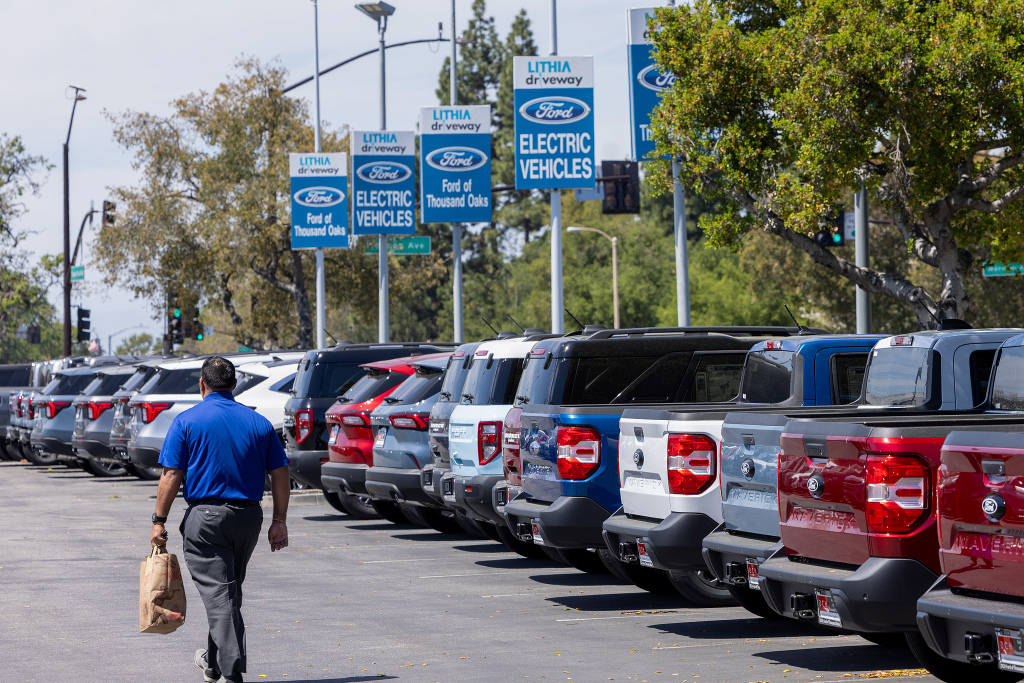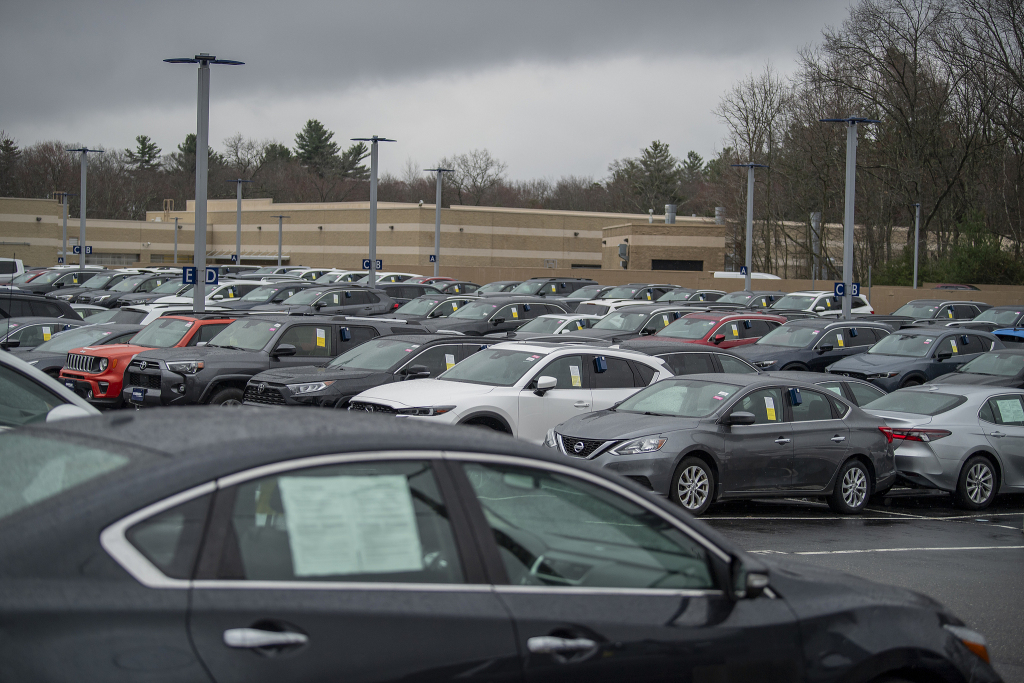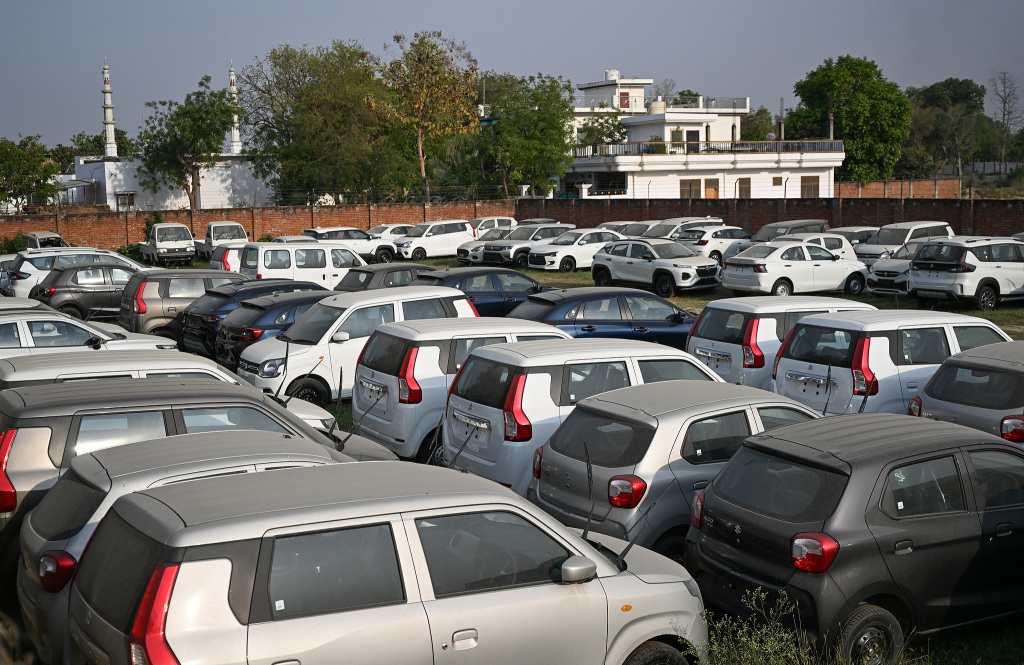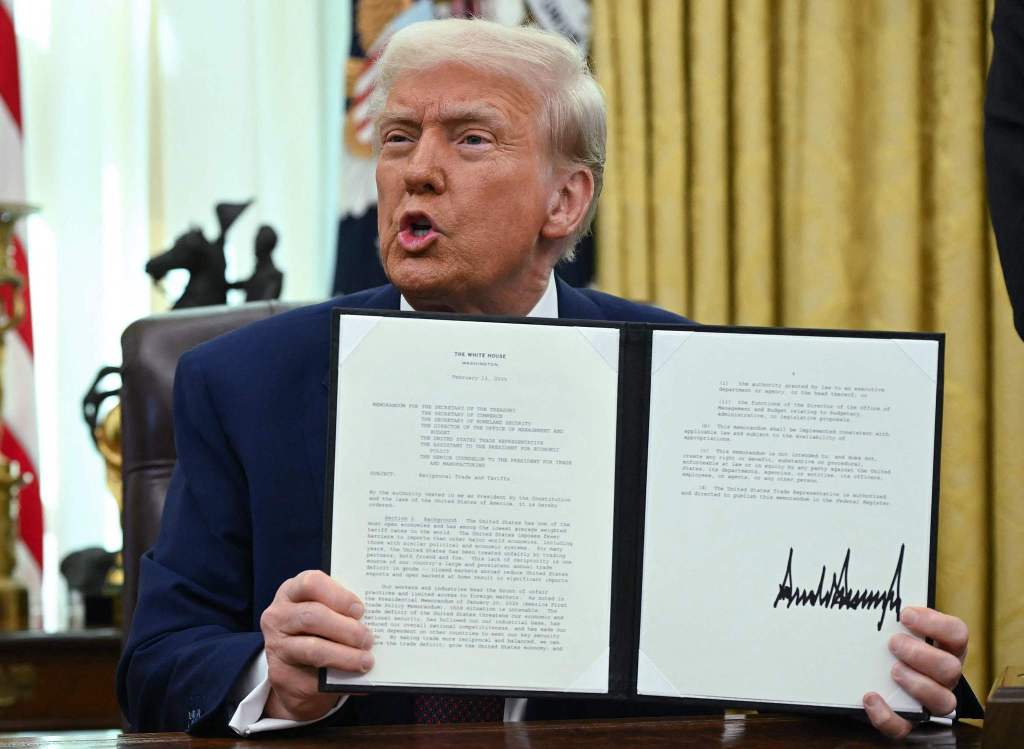
"I'm a very flexible person, not going to change my mind, but flexible," U.S. President Donald Trump said on Monday.
Recently, foreign media reported that he is studying the possibility of temporarily exempting tariffs on imported cars and parts to give automakers more time to move production to the United States.
"I'm looking at some things to help the car companies deal with this problem," Trump said in the Oval Office of the White House on Monday. "They are moving to using parts made in Canada, Mexico and other places, but it will take a little time for the transition because those parts will be made in the United States in the future."
Asked about the details of possible short-term tariff exemptions, Trump did not specify a specific duration for suspending or reducing auto tariffs.

A Ford dealer displays a new Ford car in Thousand Oaks, California, the United States, on April 11, 2025. U.S. President Trump imposed a 25% tariff on imported cars last week, causing automakers to shut down production and reconsider pricing.
Trump's statement may bring respite to automakers hit by import tariffs on cars and light trucks, but it also adds more uncertainty to his tariff policy. After the news was announced, the share prices of General Motors, Ford Motor and Stellantis Group rebounded quickly, hitting the highest point of the day.
Currently, the United States imposes a 25% tariff on imported vehicles, and the tariff on parts is scheduled to take effect before May 3. The auto industry warns that if fully implemented, this move will increase the cost of car purchases for American consumers and disrupt the US auto manufacturing industry, which is highly dependent on the supply chain in Canada and Mexico. The Trump administration argues that tariffs are necessary to revive the US manufacturing industry.
Detroit's three largest automakers have been lobbying the government for weeks to exclude some low-cost parts from the tariff list. People familiar with the matter said Ford, GM and Stellantis have expressed their willingness to pay tariffs on complete vehicles and large parts such as engines and transmissions, but stressed that if a wider range of parts are taxed, it will lead to soaring costs, profit warnings and layoffs, which runs counter to Trump's goal of reviving the manufacturing industry.

On April 2, 2025, local time, in Washington, the United States, President Trump held a "Make America Rich Again" trade announcement event in the Rose Garden of the White House and threw a hat to the United Auto Workers (UAW).
“The industry needs a certain amount of buffer time to make the adjustments that the government expects,” said Mitch Zajac, an automotive supply chain attorney at Butzel Long in Detroit. “This transformation cannot be completed overnight.”
According to a report by Anderson Economics this month, the new tariffs could increase the cost of some imported luxury cars by up to $20,000, and even small sedans and crossovers that are more localized in the United States will increase costs by $2,500 to $4,500. The report estimates that the tariffs will cost American consumers $30 billion in additional expenses in the first year of implementation. Currently, the average price of a new car in the United States is close to $50,000, and the increase in tariffs will further increase consumer pressure.


